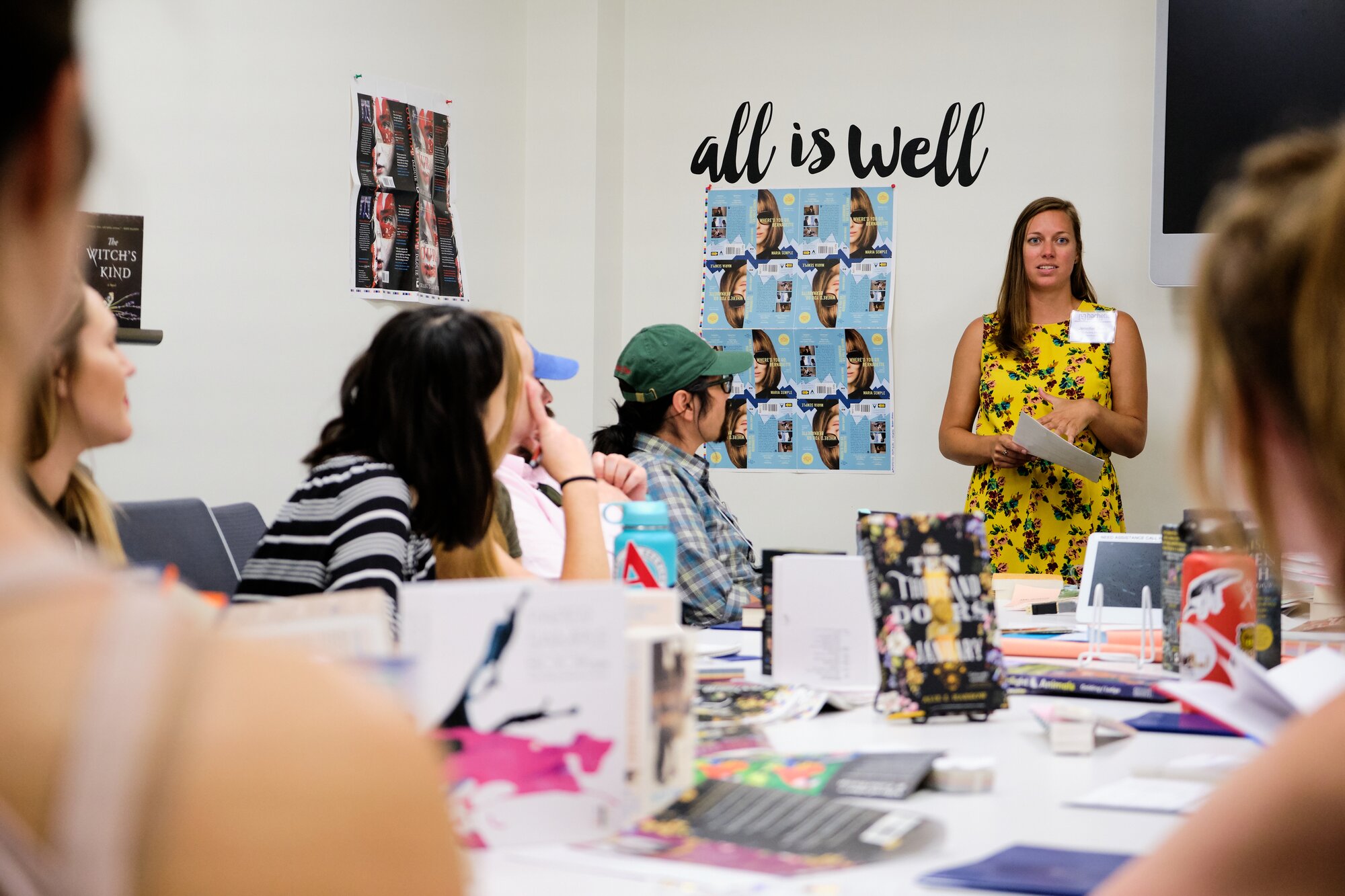The Denver Publishing Institute prepares book champions for careers in an ever-changing marketplace

Ever since the coronavirus pandemic turned life upside down, the U.S. publishing industry has found itself on a wilder-than-usual roller-coaster ride.
First, the picture seemed encouraging. With millions of people suddenly homebound, books emerged as a welcome distraction—and sales reflected that. Later, as supply chain issues escalated, publishers faced paper shortages and production delays. And when life returned to near normal, sales wobbled, confirming the findings of a 2022 Gallup poll that shows book consumption on the decline—whether readers are swiping on their e-books or turning paper pages.
So, how is the publishing world preparing to navigate the latest challenges? At the renowned Denver Publishing Institute (DPI)—one of only four summer programs in the country dedicated to training the next generation of innovators—the focus has expanded. The industry still wants to hire people who can produce and sell great books. But it also wants a talent pool tuned to the tastes of underserved audiences.
“People have different reading preferences, and publishing is trying to meet those preferences,” says DPI director Jill Smith.
A four-week graduate-level program in the University of Denver’s College of Arts, Humanities and Social Sciences, DPI enrolls about 95 students for its summer workshops, lectures, networking events and field trips. “We teach everything—from acquisition to printing and distribution. We try to cover the life cycle of the book,” Smith says, noting that DPI students benefit from programming that explores a range of book products, from children’s stories to college textbooks.

The institute was founded by influential New York publisher Elizabeth Geiser in 1976. In 2007, she was succeeded by Joyce Meskis, a formidable champion of First Amendment rights and former owner of Denver’s Tattered Cover Book Store. Smith has been running the program since 2015.
Over the years, the DPI has adapted its programming to include everything from new technologies and changing demographics to equity issues. To address the latter, DPI launched a scholarship in 2021 for students from underrepresented populations. Smith hopes the move will help diversify publishing’s workforce and the titles published.
“Those things are interconnected,” she says. “If there is a lack of diversity among acquiring editors, they might be less likely to acquire books by diverse authors.” Thanks in large part to the scholarship, applications and attendance from marginalized and underrepresented communities have grown from 16% to 25% in the past two years.
As it aims to connect with new readers, the industry is also seeking professionals who can harness their life experiences—including a deep familiarity with social media—to make a difference in the industry. Social media know-how represents a significant advantage for an industry focused on integrating the tried and true with the new. “They are looking for employees who understand how to reach audiences in new ways,” Smith says.
Like the industry it serves, the institute has also had to reach its target audience in new ways. In summer 2022, DPI introduced its first dual-modality program to address the challenges presented by the pandemic shutdown. One group of students attended live lectures from an auditorium on campus, while the other watched the same lecture remotely. “What we liked about having a dual-modality program is that we could meet students where they were and where they wanted to learn,” Smith says. She considers the remote component a success and hopes to optimize it in the future.
Students share her enthusiasm for the dual-modality program. When asked if it made DPI a more compelling choice for him, Nicholas Goudsmit offers an unequivocal answer: “Yes with a capital Y.”
“The content in ’22 was current and forward-thinking, offered by some of the leading figures of the publishing world,” says Goudsmit, who entered the institute as a remote student hoping to become a full-time editor after graduation. He is now an editorial specialist at Harvard University. “My new role runs the gamut of the publishing process, and my exposure to more than just the editorial side of publishing made me a qualified candidate.”
Looking to the future, Smith expects to see renewed interest in print on demand as publishers continue to contend with supply chain complexities. When books can be printed in the U.S. in smaller print runs, she explains, “you don’t have to order the massive volumes to have them shipped from overseas and encounter possible delays.”
Smith credits the rise of remote work and freelancing in a gig economy with changing the industry. For one thing, it’s no longer imperative to move to New York to land a publishing job. Last year, DPI leaders sent out 442 job postings to alumni. Those postings came from 35 states, Washington, D.C., Canada and the United Kingdom. Twenty percent of them had a remote or hybrid option.
Ultimately, Smith’s goal is to help people who love books find their niche in the industry. While many enter the program eager to become editors, others find their calling in publicity and sales, or as literary agents. “It is a program of self-discovery,” Smith says.
Learn more about the Denver Publishing Institute at the University of Denver